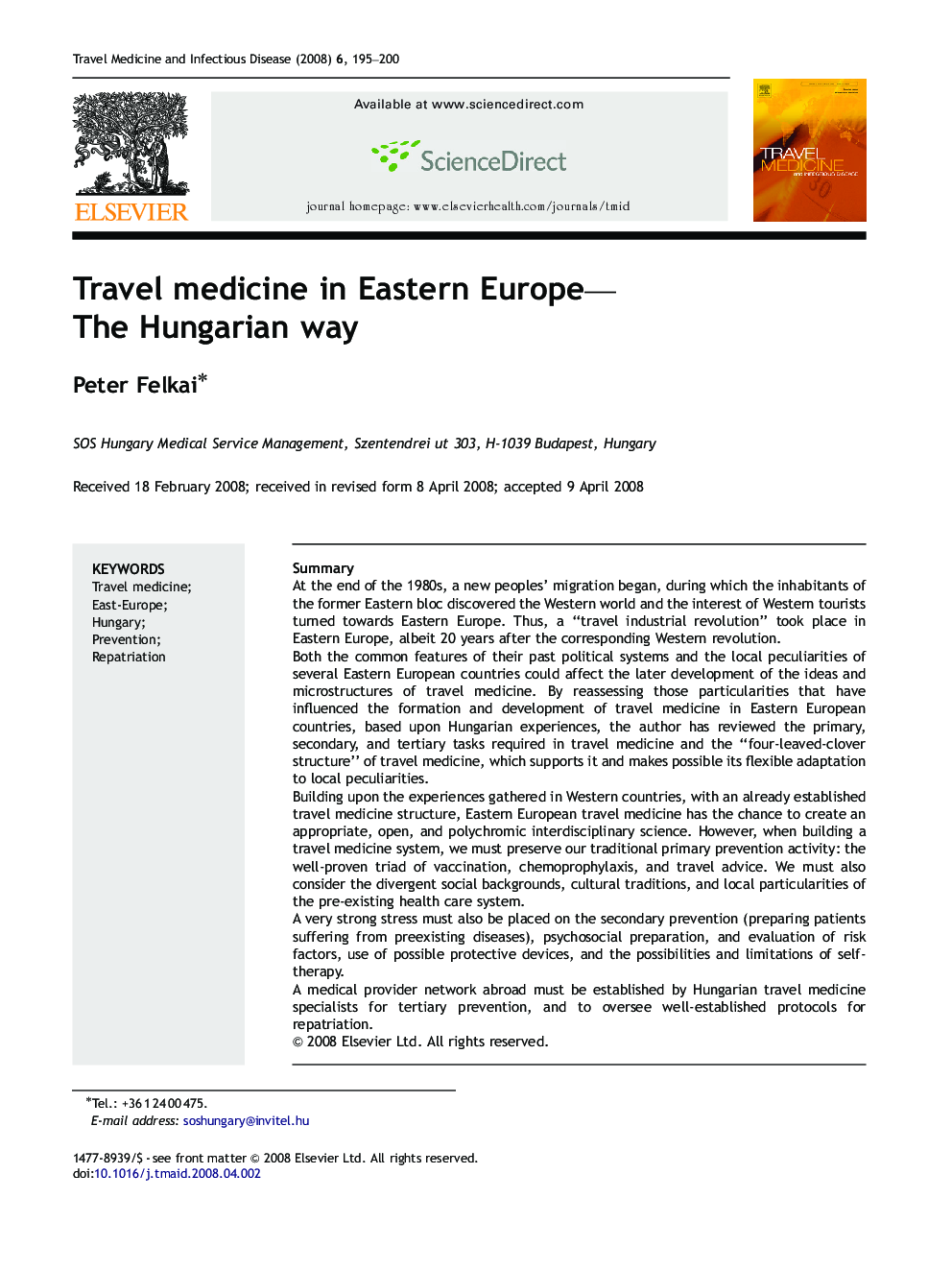| کد مقاله | کد نشریه | سال انتشار | مقاله انگلیسی | نسخه تمام متن |
|---|---|---|---|---|
| 3393601 | 1221351 | 2008 | 6 صفحه PDF | دانلود رایگان |

SummaryAt the end of the 1980s, a new peoples’ migration began, during which the inhabitants of the former Eastern bloc discovered the Western world and the interest of Western tourists turned towards Eastern Europe. Thus, a “travel industrial revolution” took place in Eastern Europe, albeit 20 years after the corresponding Western revolution.Both the common features of their past political systems and the local peculiarities of several Eastern European countries could affect the later development of the ideas and microstructures of travel medicine. By reassessing those particularities that have influenced the formation and development of travel medicine in Eastern European countries, based upon Hungarian experiences, the author has reviewed the primary, secondary, and tertiary tasks required in travel medicine and the “four-leaved-clover structure” of travel medicine, which supports it and makes possible its flexible adaptation to local peculiarities.Building upon the experiences gathered in Western countries, with an already established travel medicine structure, Eastern European travel medicine has the chance to create an appropriate, open, and polychromic interdisciplinary science. However, when building a travel medicine system, we must preserve our traditional primary prevention activity: the well-proven triad of vaccination, chemoprophylaxis, and travel advice. We must also consider the divergent social backgrounds, cultural traditions, and local particularities of the pre-existing health care system.A very strong stress must also be placed on the secondary prevention (preparing patients suffering from preexisting diseases), psychosocial preparation, and evaluation of risk factors, use of possible protective devices, and the possibilities and limitations of self-therapy.A medical provider network abroad must be established by Hungarian travel medicine specialists for tertiary prevention, and to oversee well-established protocols for repatriation.
Journal: Travel Medicine and Infectious Disease - Volume 6, Issue 4, July 2008, Pages 195–200